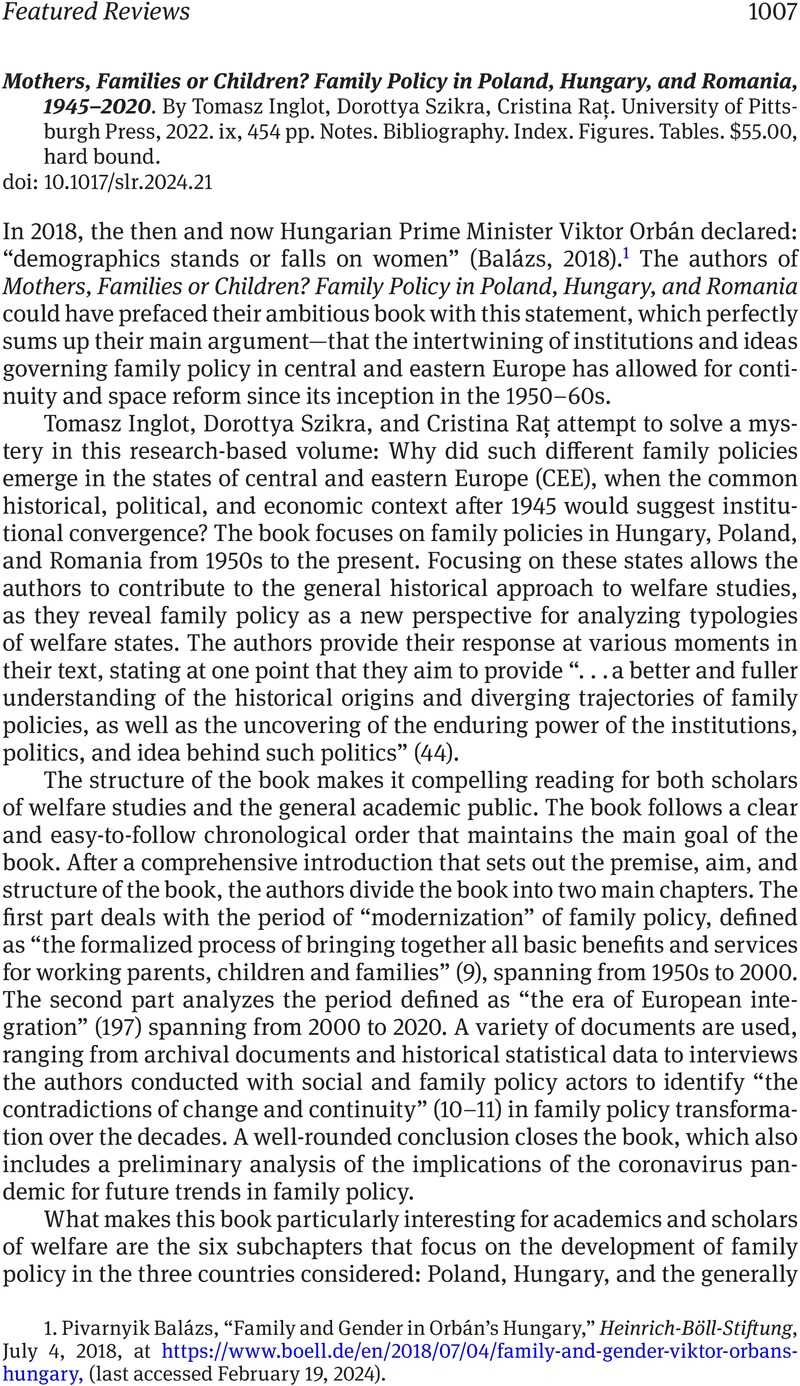No CrossRef data available.
Published online by Cambridge University Press: 18 April 2024

1. Pivarnyik Balázs, “Family and Gender in Orbán's Hungary,” Heinrich-Böll-Stiftung, July 4, 2018, at https://www.boell.de/en/2018/07/04/family-and-gender-viktor-orbans-hungary, (last accessed February 19, 2024).
2. Crane, Jennifer, “Agents of Change? Families, Welfare and Democracy in Mid-to-Late Twentieth-Century Europe,” special issue of Contemporary European History 32, vol. 2 (May 2023): 173–85CrossRefGoogle Scholar.
3. Ginsborg, Paul, “The Politics of the Family in Twentieth-Century Europe” Contemporary European History 9, no. 3 (November 2000): 411–44CrossRefGoogle Scholar; Ginsborg, Paul, Family Politics: Domestic Life, Devastation and Survival, 1900–1950 (New Haven, 2014)Google Scholar.
4. Bernhard, Michael, “What Do We Know about Civil Society and Regime Change Thirty Years after 1989?” East European Politics 36, no. 3 (2020): 341–62CrossRefGoogle Scholar; Dobbins, Michael and Riedel, Rafaɫ, eds., Exploring Organized Interests in Post-Communist Policy-Making: The “Missing Link” (London, 2021)CrossRefGoogle Scholar.
5. Pető, Andrea, “Gender and Illiberalism” in Sajó, András, Uitz, Renáta, and Holmes, Steven, eds., Routledge Handbook of Illiberalism (New York, 2021), 313–25CrossRefGoogle Scholar.
6. Dragolea, Alina, “Illibireal Discourse in Romania: A ‘Golden’ New Beginning?” Politics and Governance 10, no. 4 (2022): 84–94CrossRefGoogle Scholar.